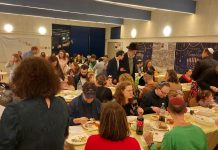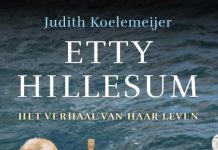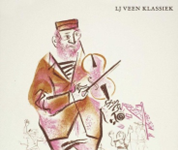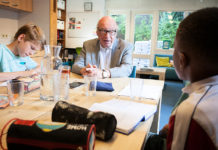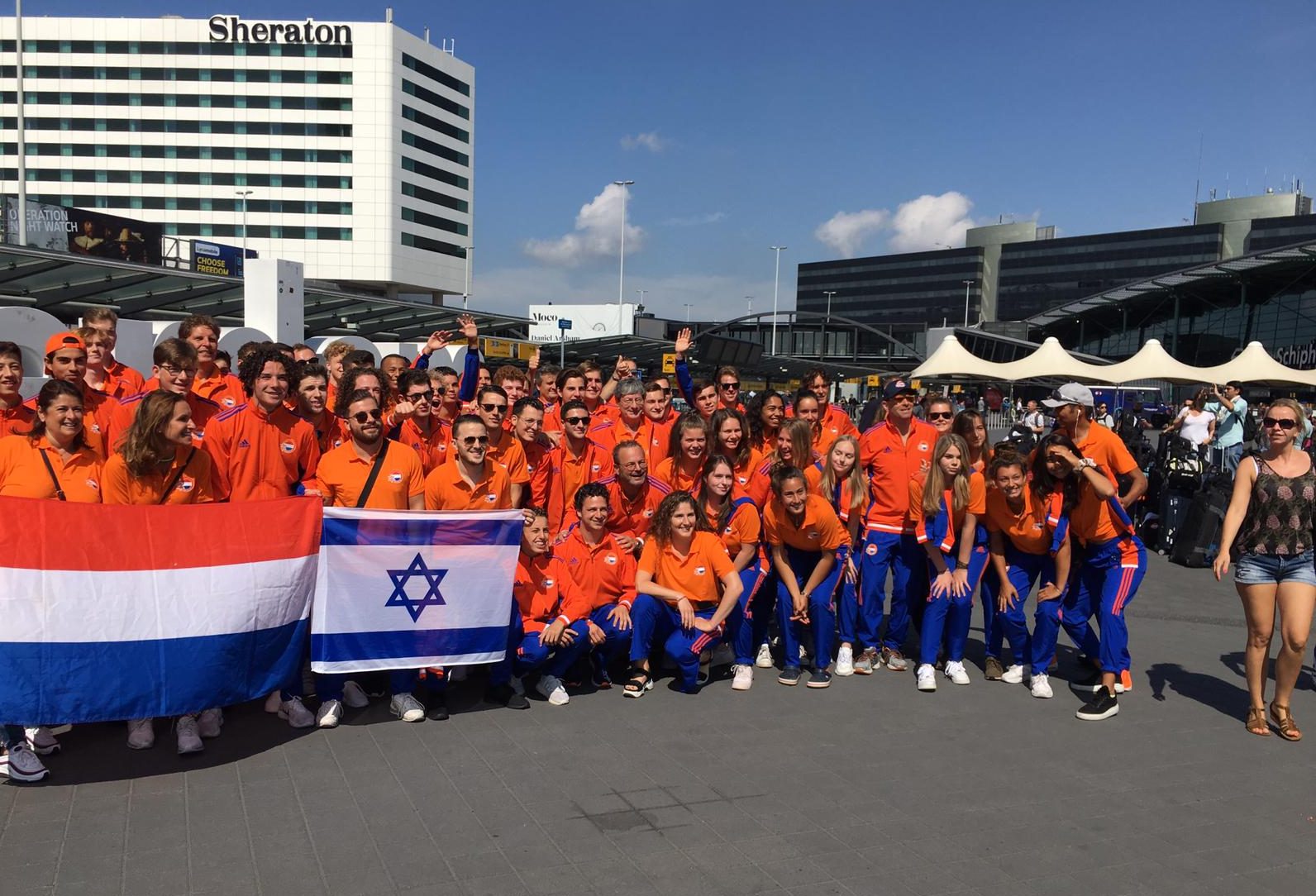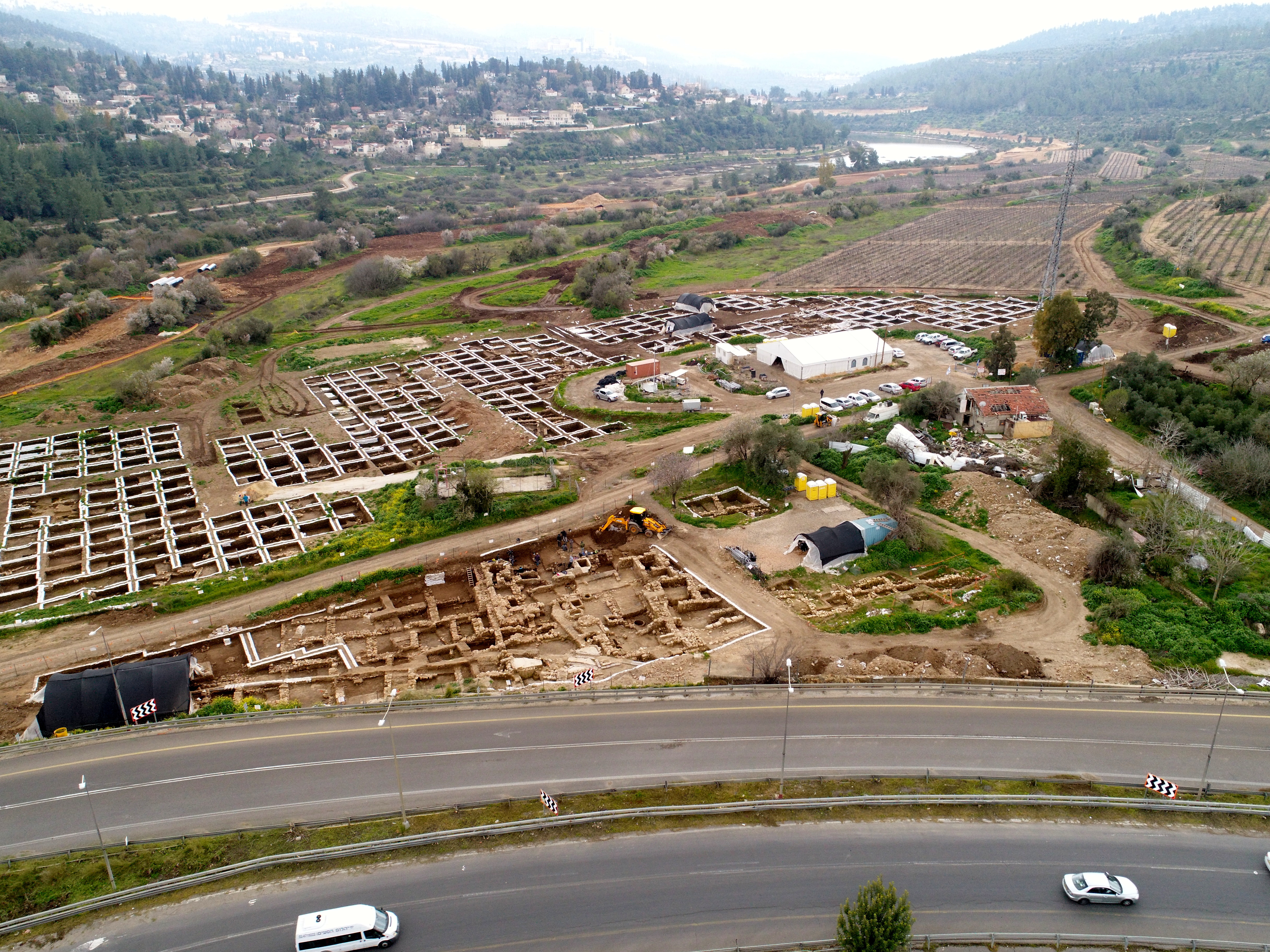

Na Sjiwiti Adonaj (psalm 16:8-9) gezongen door het Koor van de Liberaal Joodse Gemeente o.l.v. Marcela Obermeister werden door zes scholieren de traditionele zes fakkels ontstoken. De gure harde wind maakte het aansteken van de pitten niet gemakkelijk.
Als eerste sprak de Ambassadeur van Israël, de heer E. Margalit.
Dear Friends, Shalom.
Together we remember, today, here, those who were taken from Holland and passed through this very place, to be deported, and in almost all cases, to be killed. We remember them as we remember all of those
deported and murdered across Europe. This year, as each year, we, the living, hold in our memory, the millions of men, women and children whose death still baffles our thoughts, and fills us with sadness.
Our conscience will never stop struggling with this history, whether we read the testimonies of survivors who were religious, or secular, Zionists or non Zionists, socialists or liberals. Yet, our common connection with them, and our responsibility to them, as guardians of their memory, is deeper than anything that divided Jewish people today in the past and continues to divide us today.
Days of commemoration, Yizkor and Kaddish, carry their own significance. In Israël as in Jewish communities throughout the world, we remember, on Yom HaShoah, the 27th of the month Nissan, which marks the day on which the uprising began in the ghetto of Warsaw on April 19, 1943, sixty years ago. This is the reason why the full name of the Yom HaShoah is Yom HaShoah Vehagura.
Amsterdam, Warsaw, and Jerusalem: For a moment, I would like to connect these places. Beyond the tragedy of the Shoah, something else connects them across space and time. For if anything shines through from that darkest moment, it is the bravery and heroism of ordinary men and women in the face of the gravest dangers. In Jerusalem, at Yad Vashem, Israël honors permanently non-Jews who saved Jewish lives, those incredible stories of ordinary men and women who had nothing, and still gave everything to save the life of people they often had never met before. Many of the most moving stories took place here in Holland ? people were even smuggled out of this very place and from the crèche across the street. We are in their debt forever, forever grateful.
Yet as we remember and thank those Righteous Among the Nations, we remember today the bravery of Jews as well, Jews who resisted, rebelled, and fought for their freedom. Contrary to a certain image, all too widely held, Jewish resistance to Nazism during the war was large and wide-spread: there were thousands of Jews in all the allied armies, in the resistance of many countries, among partisans, in the underground, there were heroic rebellions in ghetto?s across Eastern Europe, in Bialystok, in Krakow, and the greatest rebellion of all, in the ghetto of Warsaw.
These desperate acts of resistance testify to the spirit of many of our people. Their human spirit constituted a cry for life and a banner of Jewish hope for future generations. This is the hope to live in freedom and security. We remember them today, on Yom HaShoah, but we think of their heroism every day.
After the war, many of the Shoah survivors came to Israël, and contributed to
Advertentie (4)



